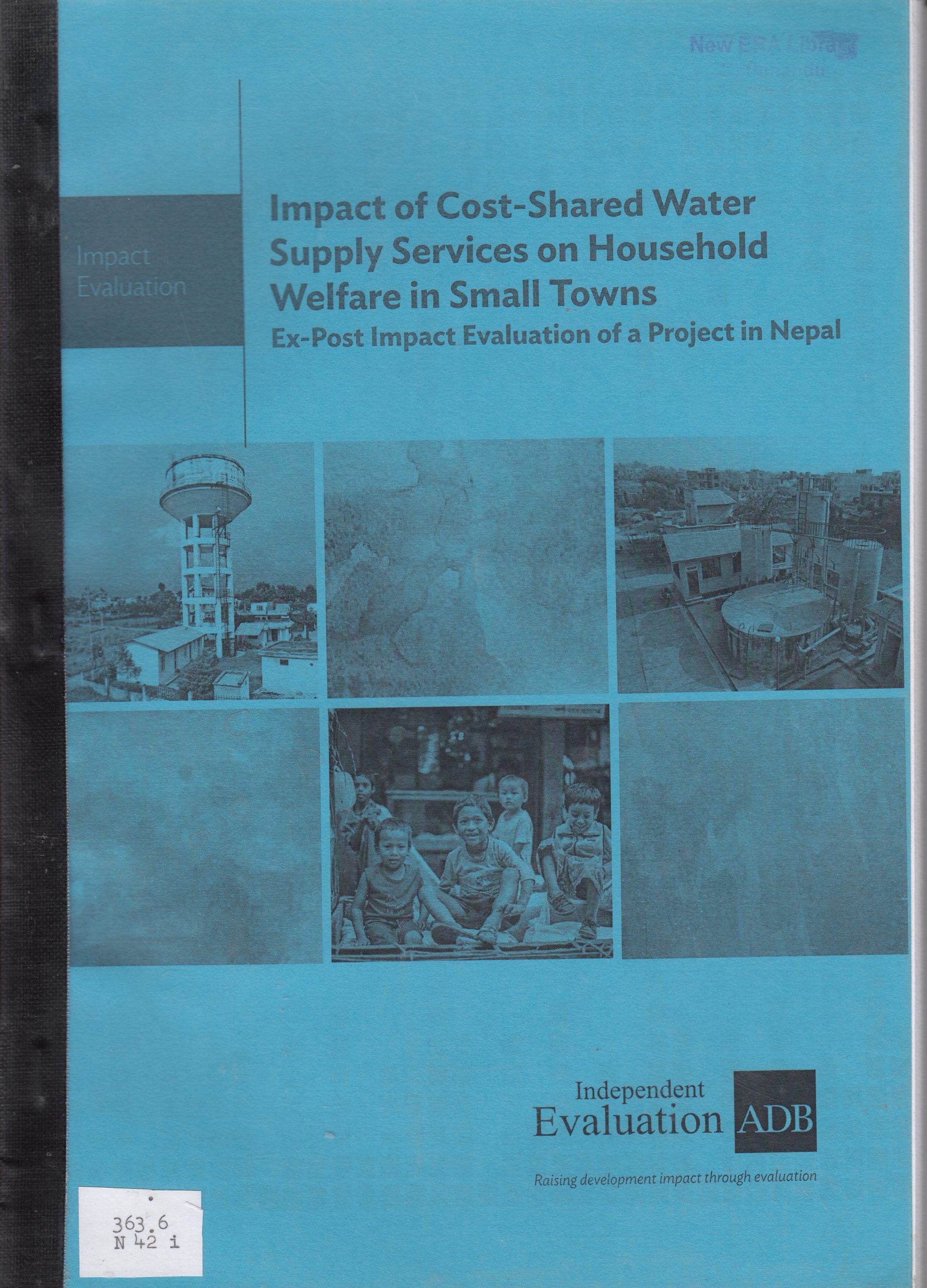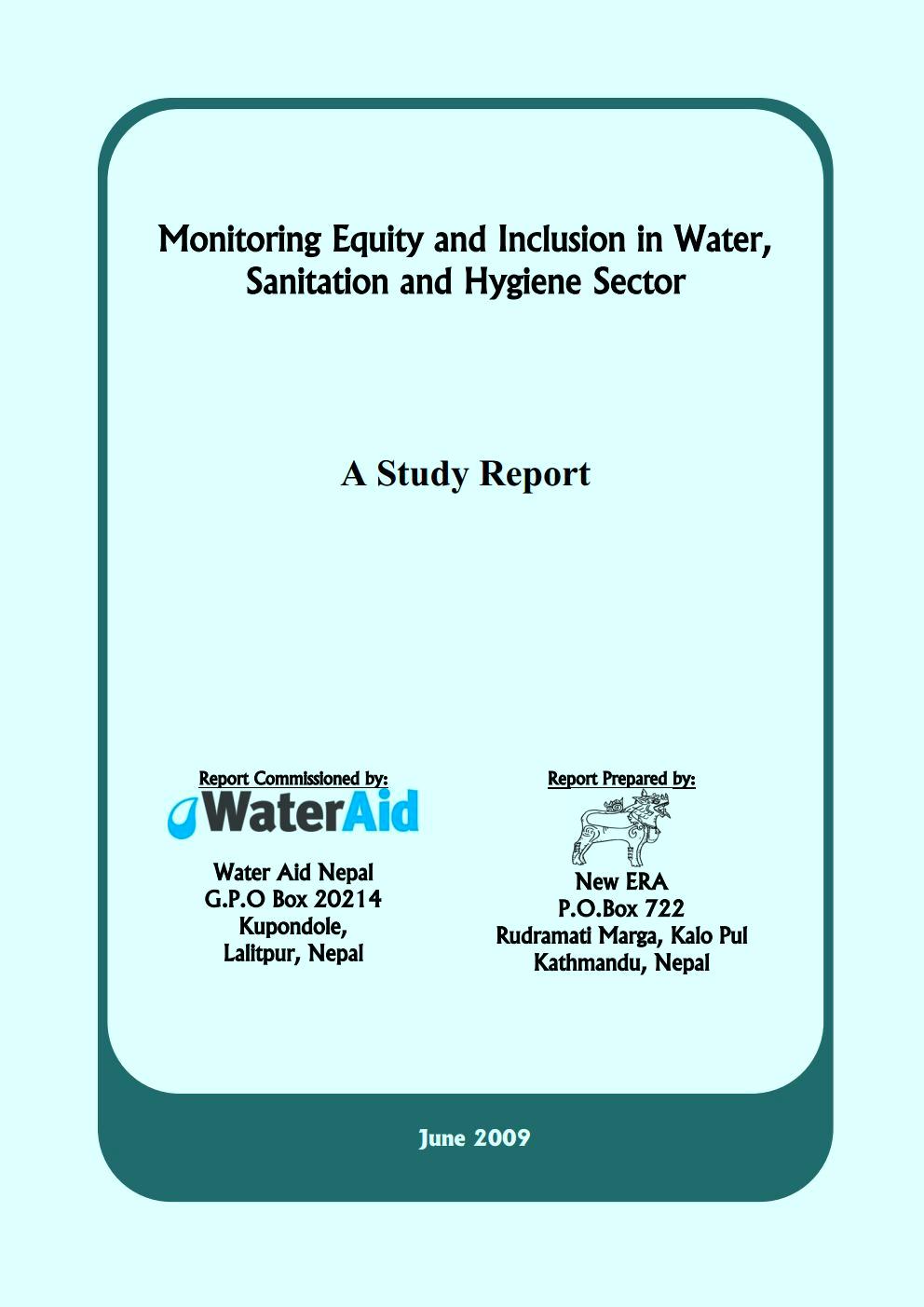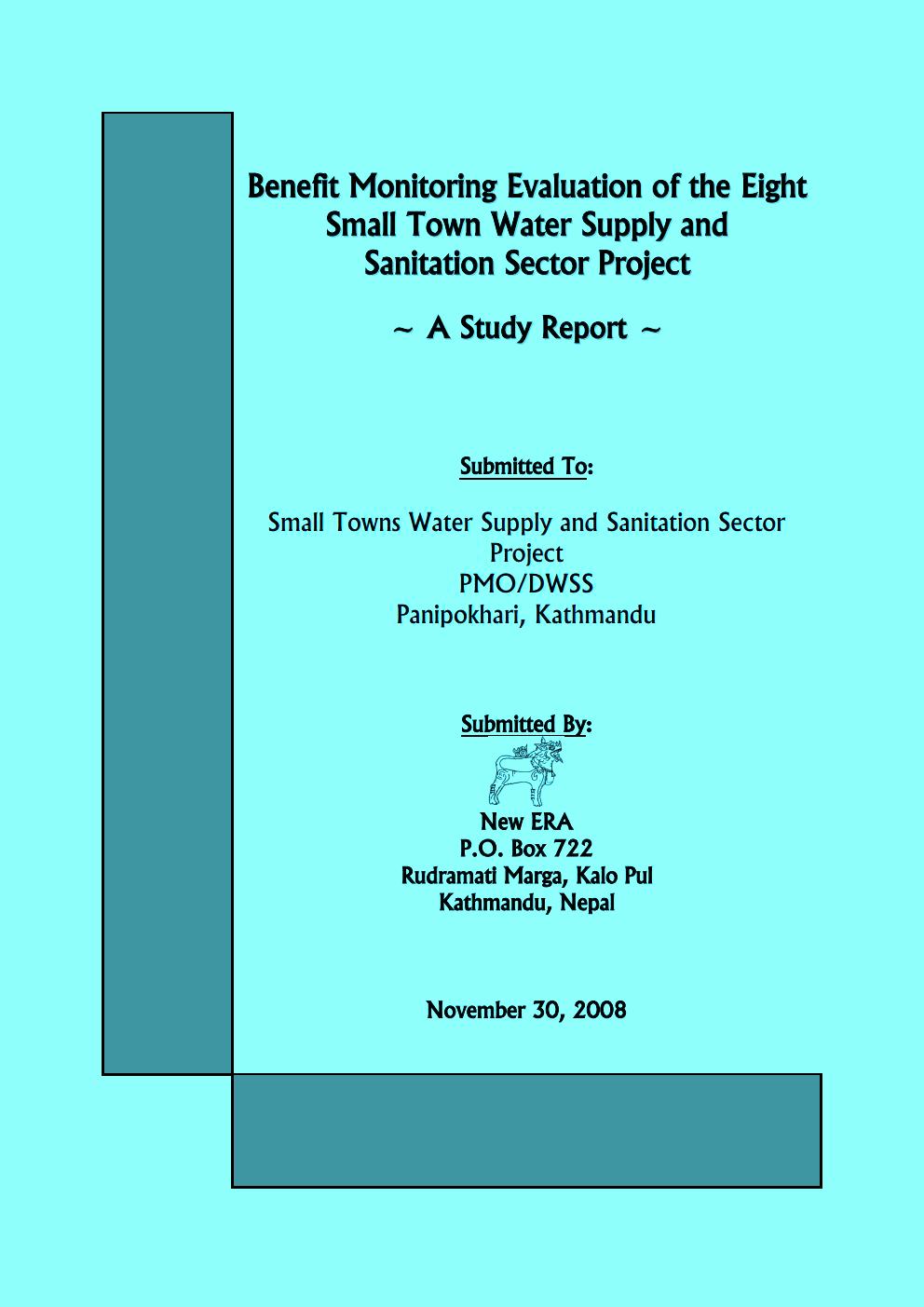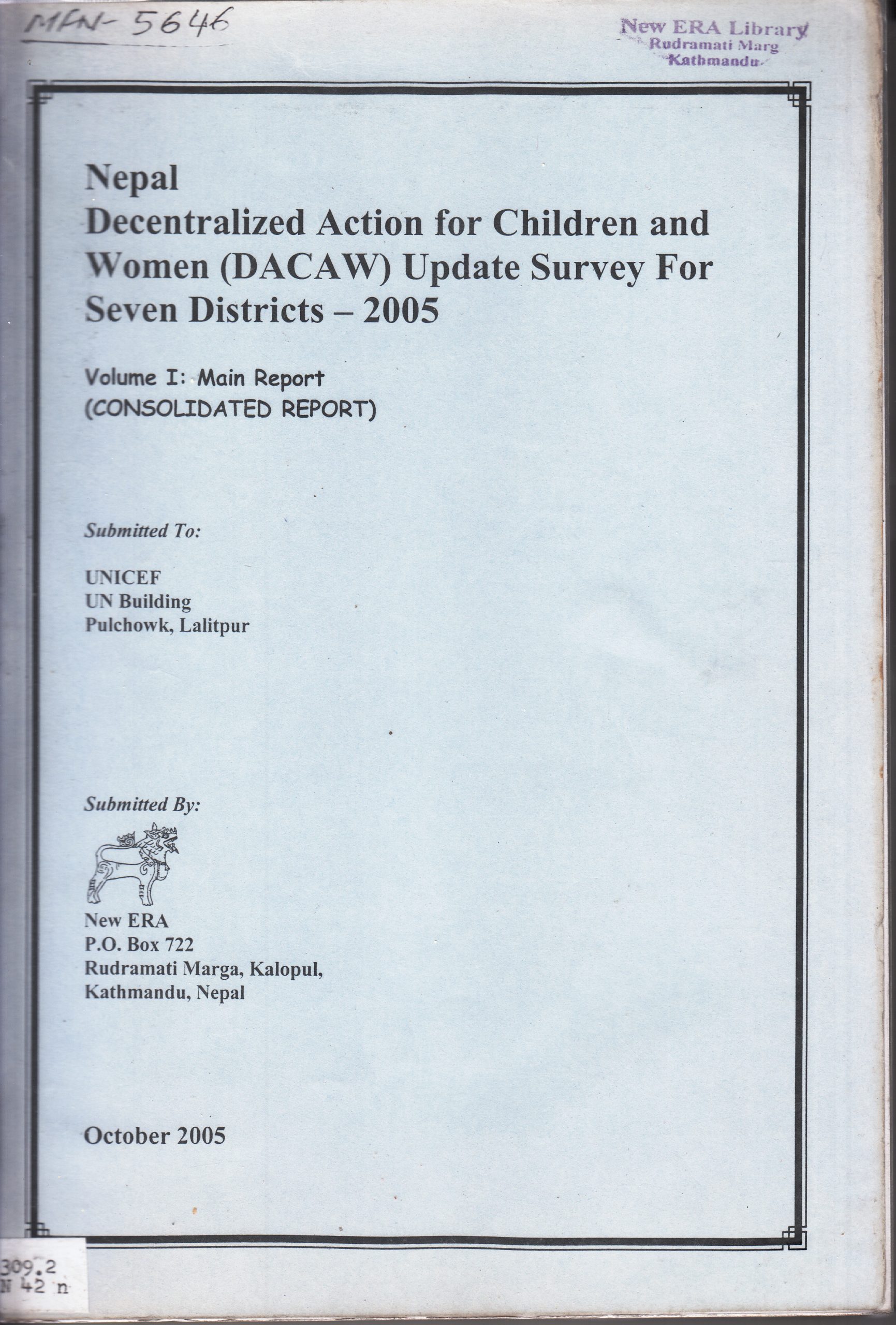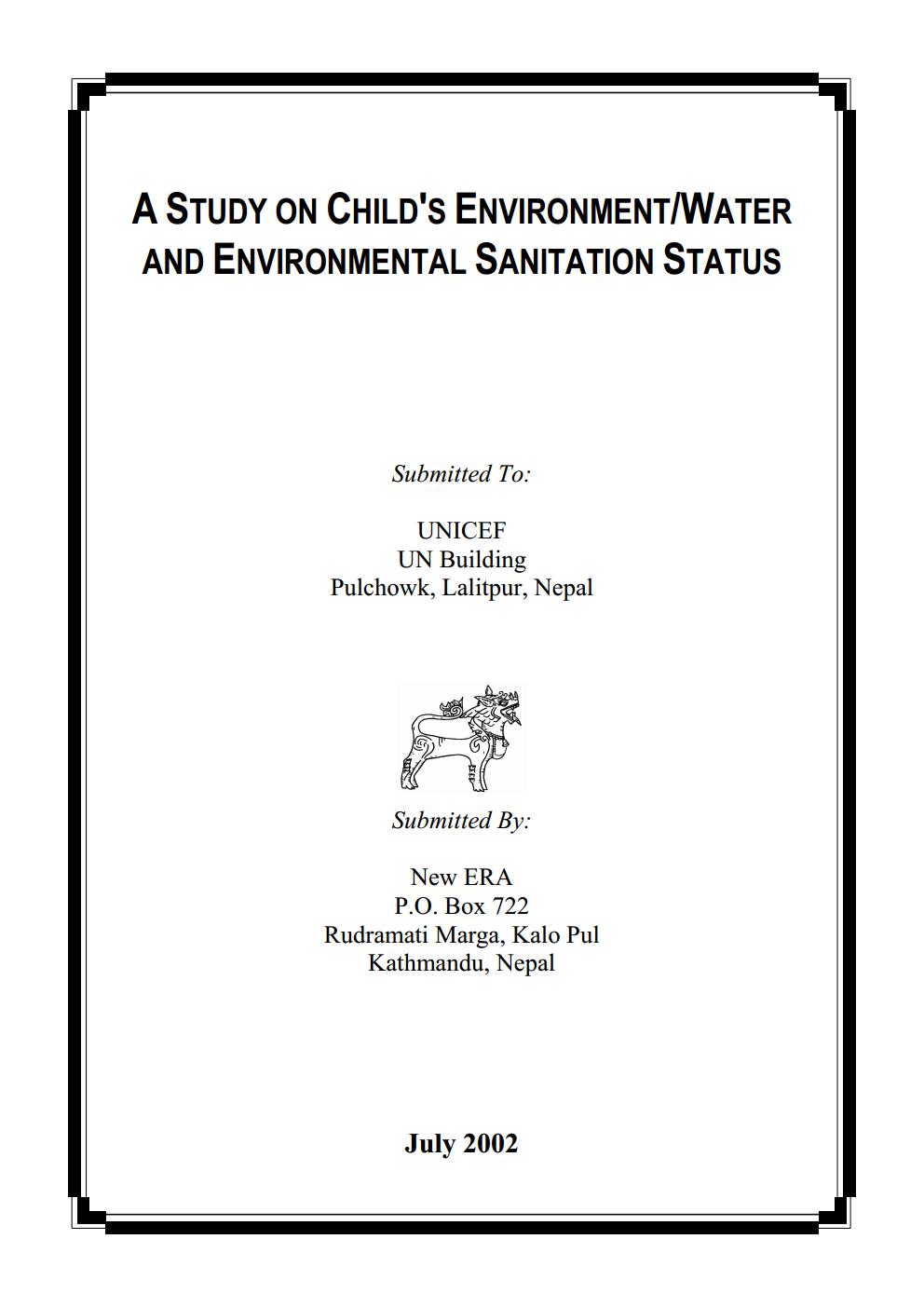The International Food Policy Research Institute (IFPRI) developed new metrics to measure the extent and drivers of women’s empowerment in Water, Sanitation, and Hygiene (WASH) in support of USAID. The metrics was developed as diagnostic tools: to assess changes over time and as a result of specific WASH-related interventions. It further aimed to better understand the relationships between empowerment and WASH-related outcomes by examining the individual and household level varieties associated with more incredible women’s or adolescent girls’ empowerment. In this context, New ERA was associated and responsible for survey implementation in Nepal.
Report Type: Water & Sanitation
Karnali Water Activity Baseline Survey
The Development Alternate Inc. (DAI)/USAID Karnali Water Activity creates healthy, resilient and water secure communities at the watershed level through strengthened water and sanitation governance that improves water resource management (including water for more resilient and bio-diverse ecosystems), enhances sustainable access to drinking water, improves agricultural water management and reduces the fecal pathogen burden in the environment from poorly managed non-sewered sanitation through fecal sludge management.
Impact of Cost-Shared Water Supply Services on Household Welfare in Small Towns: Ex-Post Impact Evaluation of a Project in Nepal
This study was to assess socio-economic impact of the beneficiaries from the drinking water project funded by ADB. The study also assesses adequacy and quality of drinking water supplied to the targeted beneficiaries, general maintenance and management aspects of the projects. The study has examined present situation of the ADB funded projects and compared the present situation of projects constructed under other fund through government.
Monitoring Equity and Inclusion in Water, Sanitation and Hygiene Sector – A Study Report
This study was to monitor the current state of equity and inclusion in water, sanitation and hygiene in its two working districts namely Morang and Parbat. The overall objective of the study was to raise awareness and promote debate on the equity and inclusion orientation of the water, sanitation and hygiene sector in Nepal. The study provided a base to design and target water and sanitation programs at the socially excluded and economically vulnerable subgroups, and examined the extent different implementing partners have devised inclusive measures in providing equitable coverage of the facilities in the communities. The report also contains an extensive review of the policies and strategies of the government and major stakeholders which included NEWAH and Rural Water Supply and Sanitation Fund Development Board.
Public Relations Consulting Services for Melamchi Water Supply Development Board
New ERA in association with Business Development Association (BDA)/Nepal (P.) Ltd. and Garcia and Associates, USA carried out Public Relations Consulting Services (PRCS) as a component of the Melamchi Water Supply Project (MWSP), for the Melamchi Water Supply Development Board. The project lasted from 2004 to 2009. This project is the most viable long-term alternative to ease the chronic water shortage situation in the Kathmandu Valley. The project was designed to divert about 170 million liters per day (MLD) of fresh water to the Kathmandu Valley from the Melamchi River in Sindhupalchok district. Augmenting this supply by approximately another 170 MLD each from the Yangri and Larke rivers, which lie in the upstream proximity of the Melamchi have also been investigated as future supply sources. The broad objective of PRCS was to create an enabling environment for the successful design and execution of the MWSP. The project undertook effective strategies towards building general awareness among the stakeholders so as to provide a conducive atmosphere for the completion and smooth running of the MWSP.
Benefit Monitoring Evaluation of the Eight Small Towns Water Supply and Sanitation Sector Project
The Department of Water Supply and Sewerage (DWSS) had implemented water supply and sanitation programs in 29 small towns of Nepal with the aim of enhancing the quality of life of the people by promoting sustainable water and sanitation facilities following demand driven approach. This BME study was to assess the actual benefit achieved by project site people of eight small towns of Nepal.
Nepal Decentralized Action for Children and Women (DACAW) Update Survey for Seven Districts 2005 – Consolidated Report
Decentralized Action for Child and Women (DACAW) program was officially started as Decentralized Planning for the Child Programme (DPCP) in 1998. The program was focuses on child health, maternal and neonatal health, safe drinking water and sanitation, basic education, protection of children and women, awareness of HIV/AIDS and so on. The key strategies followed for this include recurrent application of Community Action Process (CAP), improvement in responsive service delivery and promotion of decentralized governance in favor of children, mothers and caretakers. This survey was conducted to assess the changes of status of women and children in the program districts between 1998 and 2003. The study also examined the CAP settlements in relation to both responsive service delivery and decentralized governance.
Final Evaluation of Drinking Water and Sanitation Program (DWSP) Phase IV
The Drinking Water and Sanitation Program (DWSP) was implemented by the NRCS in 1983 as a component of its
Community Development Program. After the successful completion of Phase III, the project was extended to Phase
IV (1998 to 2003), covering six new districts of Chitwan, Sarlahi, Saptari, Jhapa, Ilam, and Panchthar, with more
emphasis on institutional development. This study measures the impact of the DWSP Phase IV on reducing morbidity and mortality. The study assesses the health and sanitation awareness among the community people; effectiveness and sustainability of drinking water and sanitation units; institutional development; and human resource development in selected VDCs of the six districts.
A Study on Child’s Environment, Water and Environmental Sanitation Status
Until the mid 1990s, water and sanitation was one of the major program focuses of UNICEF. In the early years the
focus was on the installation of water supply system and building capacity in relation to water supply systems. As it
became clear that the installation of water supply systems had not improved children’s health, the focus shifted to
hygiene and sanitation. UNICEF initiated an inter-sectoral community based program called Decentralized Planning
for Child Program (DPCP) which works with the community, the DWSS, NRCS and NEWAH. This study examines
the status of water, hygiene and sanitation in 11 DPCP and 6 non-DPCP districts. The study also assesses the
progress of hygiene and sanitation interventions for the current MPO period in non-DPCP districts.
Fourth Water Supply and Sanitation Sector Project, Department of Water Supply and Sewerage
The Fourth Water Supply and Sanitation Sector Project was implemented by the Department of Water Supply and
Sewerage, with funding from the ADB, to increase access to portable water supply, hygiene education and sanitation
facilities for socially, economically and geographically disadvantaged rural people in the Eastern, Mid-western and
Far-western development regions of Nepal. New ERA provided technical assistance to the project, particularly to
facilitate the institutionalization of the integration of water supply with hygiene education and sanitation and to
strengthen the Department’s partnership with beneficiary communities and other active members in the sector.



